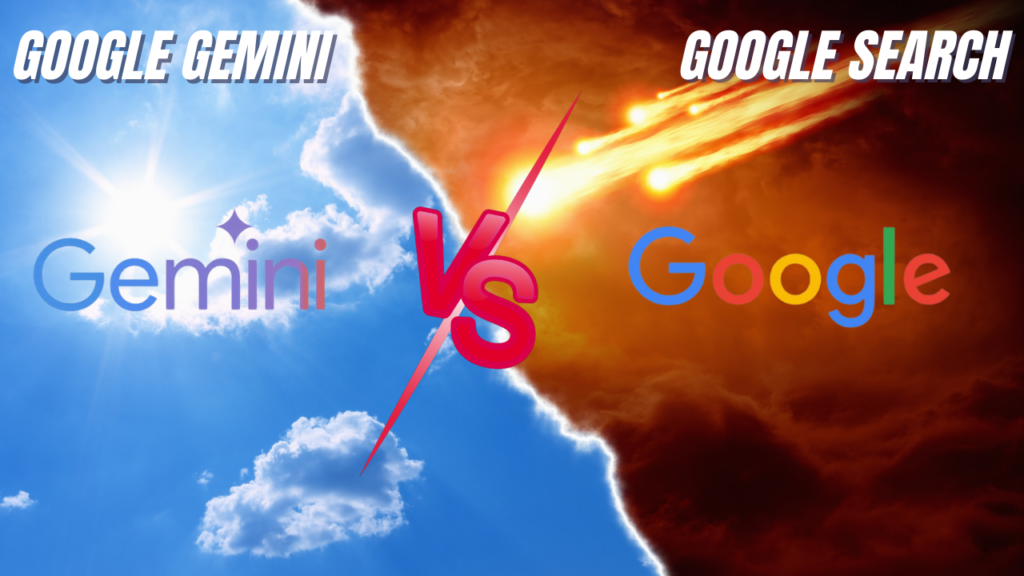When Will Google Gemini Replace Google Search? The Dawn of AI-Driven Information Retrieval

In the rapidly evolving landscape of artificial intelligence, one of the most pressing questions is whether Google Search—the cornerstone of digital information retrieval for over two decades—could be replaced by Google’s own AI-powered evolution, Gemini. As a next-generation AI model with multimodal capabilities, Gemini represents a revolutionary approach to interacting with knowledge and generating contextual insights. But is Gemini poised to supplant Google Search, and if so, when?
The Core Differences: Search vs. AI Integration
At its heart, Google Search operates as an advanced keyword-matching and indexing system, powered by ever-refined algorithms to deliver relevant results. It scours the web, analyzes billions of pages, and ranks results based on perceived relevance, authority, and user intent. While AI components like BERT (Bidirectional Encoder Representations from Transformers) have enhanced Google’s contextual understanding, its framework remains tied to search queries and static content.
Gemini, on the other hand, represents a paradigm shift within Google’s ecosystem. As a multimodal AI capable of integrating and reasoning across text, images, and potentially other data types, Gemini is designed to synthesize information, draw contextual inferences, and provide more conversational, nuanced responses. Instead of leading users to a list of links, Gemini aims to deliver actionable answers or creative solutions directly—all in a manner that feels inherently human.
How Gemini Enhances the Google Ecosystem
- Personalized Assistance: Gemini’s ability to adapt to user preferences, past queries, and even tone of communication makes it a far more personalized assistant than traditional search. This evolution could significantly enhance user experience within Google Search.
- Multimodal Capabilities: By integrating visual, textual, and other forms of input, Gemini can answer questions that extend beyond text, such as analyzing images or diagrams to provide detailed explanations—a feature that could redefine search interactions.
- Conversational Interaction: Google has already integrated conversational AI into its search experience with advancements like Bard and AI-enhanced queries. Gemini’s generative capabilities, however, promise a more fluid, context-aware dialogue that could replace traditional query paradigms.
- Real-Time Knowledge: Unlike previous AI iterations, Gemini’s dynamic analysis of real-time data may help bridge the gap between static indexing and evolving information, ensuring up-to-date responses.
The Timeline to Transformation
Replacing Google Search with Gemini’s capabilities is not just a technical challenge; it’s a question of timing, user behavior, and infrastructure adaptation. Here’s a speculative timeline:
2024-2025: Initial integration phase. Gemini enhances niche use cases such as content generation, multimodal queries, and enterprise-level problem-solving. Google tests Gemini’s capabilities alongside traditional search features to gauge user adoption.
2025-2027: Gemini begins to underpin core elements of Google Search, with AI-driven answers becoming the default for complex queries. Multimodal features—such as combining text with image analysis—become more prominent.
2027-2030: Gemini’s dominance grows as users adapt to conversational, real-time search capabilities. By this stage, the traditional keyword-based search model could be largely supplanted by AI-driven interactions.
Post-2030: Full-scale transition. If Gemini continues to advance and user adoption accelerates, it could evolve into the primary interface for accessing Google’s vast knowledge base, effectively replacing the conventional search model.
Challenges to Overcome
- Real-Time Indexing: While Gemini excels at synthesizing static and trained data, replicating Google Search’s ability to index the live web in real-time remains a hurdle.
- User Trust: Google Search has built decades of trust as a reliable gateway to information. For Gemini to replace it, users must feel confident in its accuracy and transparency.
- Economic Implications: Search advertising constitutes a significant revenue stream for Google. Transitioning to a Gemini-driven model without undermining this revenue poses a complex challenge.
- Regulatory and Ethical Issues: As AI becomes central to Google’s operations, questions about data privacy, content attribution, and algorithmic bias will demand ongoing attention.
Will Google Compete with Itself?
Google’s development of Gemini signals a recognition of its own limitations in the face of AI’s transformative potential. However, balancing Gemini’s growth with the sustained success of traditional search will require careful strategizing. Google’s unparalleled data access and entrenched user base provide formidable advantages, but rapid innovation and user-centric design will be critical to Gemini’s success.
Conclusion
The transition from keyword-based search engines to AI-driven information assistants represents a seismic shift in how we access knowledge. With Gemini, Google is not only competing against external challengers but also redefining its own legacy. While the full replacement of Google Search by Gemini may still be years away, the integration of AI-driven features signals the dawn of a new era in information retrieval.
Whether Gemini ultimately replaces Google Search or evolves as its most powerful enhancement, one thing is certain: the way we interact with information is on the brink of a profound transformation.






